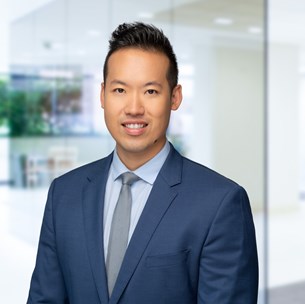Meeting
2021 ASCO Annual Meeting

Women's College Hospital, Toronto, ON, Canada
David W Lim , Helene Retrouvey , Isabel Kerrebijn , Kate Butler , Anne C. O'Neill , Tulin D. Cil , Toni Zhong , Stefan O. P. Hofer , David R. McCready , Kelly A. Metcalfe
Background: In breast cancer, clinicians aim to improve survival while patients value quality of life. We aim to delineate the impact of patient, tumour and treatment factors on psychosocial outcomes after treatment. Methods: A prospective cohort of women with unilateral stage I-III breast cancer were recruited at University Health Network in Toronto, Canada between 2014-2017. Validated questionnaires (BREAST-Q, Impact of Event, Hospital Anxiety & Depression Scales) were completed pre-operatively, and 6 and 12 months after surgery. Change in psychosocial scores over time by surgical procedure was assessed using linear mixed models, controlling for age, pathologic stage, hormone (HR) and HER2 receptor, and treatments. Predictors of psychosocial outcomes at 12 months were assessed using multivariable linear regression models. P values <.05 were significant. Results: 413 women underwent unilateral lumpectomy (48%), unilateral mastectomy (36%) and bilateral mastectomy (16%). Pathologic stage were: 18 ypT0/Tis (4%), 201 stage I (49%), 136 stage II (33%) and 58 stage III (14%). Receptor profiles were as follows: 277 HR+/HER2- (68%), 59 HR+/HER2+ (14%), 31 HR-/HER2+ (8%) and 39 HR-/HER2- (10%). Over time, women having unilateral lumpectomy had the highest scores of breast satisfaction (P<.01), psychosocial (P<.01) and sexual (P<.01) well-being, with no difference between unilateral versus bilateral mastectomy groups. Age was inversely related with distress (P<.01), psychosocial (P<.01) and physical (P =.001) well-being. Radiotherapy was associated with worse breast satisfaction (-8.1, P<.01), psychosocial (-6.9, P<.01) and physical (-5.8, P<.01) well-being, while chemotherapy was associated with worse sexual well-being (-5.5, P=.04). Endocrine therapy was associated with worse distress (6.7, P<.01), physical (-5.2, P<.01) and sexual (-6.4, P =.03) well-being. Women with a pathologic complete response had less anxiety compared to stage I (-2.0, P=.03). Women with triple-negative disease had worse breast satisfaction (-8.0, P=.03), distress (8.0, P =.01), anxiety (2.4, P<.01) and psychosocial (-7.5, P =.047) well-being than HR+/HER2- disease. In our regression model at 12 months, surgical procedure was a significant predictor of breast satisfaction (P<.01), psychosocial (P<.01), physical (P<.01) and sexual (P<.01) well-being. HER2 positivity predicted worse satisfaction (P=.045), psychosocial (P =.047), physical (P =.02) and sexual (P =.01) well-being. Income level (P=.01) predicted breast satisfaction and physical well-being. Ethnicity (P <.01) and education level (P =.04) predicted distress scores. Conclusions: Psychosocial functioning after breast cancer is influenced by an interplay between patient, tumour and treatment factors. Delineating these influences identifies potentially modifiable factors with de-escalation therapy and enhancing psychosocial support.
Disclaimer
This material on this page is ©2024 American Society of Clinical Oncology, all rights reserved. Licensing available upon request. For more information, please contact licensing@asco.org
2021 ASCO Annual Meeting
Poster Session
Breast Cancer—Local/Regional/Adjuvant
Breast Cancer
Local-Regional Therapy
J Clin Oncol 39, 2021 (suppl 15; abstr 568)
10.1200/JCO.2021.39.15_suppl.568
568
Online Only
Abstract Disclosures
2023 ASCO Quality Care Symposium
First Author: Mark Liu
2023 ASCO Annual Meeting
First Author: Santhanam Sundar
2023 ASCO Annual Meeting
First Author: Giuseppe Di Caro
2023 ASCO Quality Care Symposium
First Author: Zeeshan Muzammil